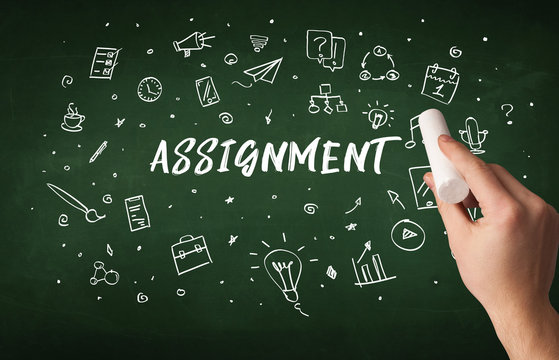Driving Quality Excellence: Empower Your Team with ISO 17025 Internal Auditor Training
Understanding ISO 17025: An Overview of the International Standard for Laboratory Quality Management Systems
ISO 17025 is a globally recognized standard that provides a comprehensive framework for laboratory quality management systems. It sets out the requirements for the competence, impartiality, and consistent operation of testing and calibration laboratories. By adhering to ISO 17025, laboratories can demonstrate their ability to produce accurate and reliable results, fostering confidence in their testing and calibration activities.
The standard covers various aspects of laboratory operations, including management responsibilities, quality system documentation, personnel competence, equipment calibration and maintenance, testing methodologies, data analysis, and result reporting. It establishes guidelines and procedures that laboratories must follow to ensure the highest level of quality, accuracy, and reliability in their operations.
Compliance with ISO 17025 is essential for laboratories seeking accreditation and recognition for their testing and calibration services. It helps laboratories meet customer expectations, comply with regulatory requirements, and align with industry best practices. Understanding the requirements and implications of ISO 17025 is crucial for laboratory professionals and stakeholders involved in quality management and decision-making processes.
By implementing ISO 17025, laboratories can enhance their credibility, competitiveness, and customer satisfaction. The standard promotes a systematic approach to quality management, emphasizing the importance of risk-based thinking, continuous improvement, and a strong focus on meeting customer needs. It provides a roadmap for laboratories to achieve operational excellence and deliver accurate and reliable results consistently.
Overall, ISO 17025 plays a pivotal role in ensuring the quality and reliability of laboratory testing and calibration activities. Understanding its requirements and implementing them effectively is paramount for laboratories seeking to demonstrate their competence, gain recognition, and provide reliable services to their customers.
The Role of an Internal Auditor in ISO 17025 Compliance: Key Responsibilities and Skills Required
Internal auditors play a crucial role in ensuring ISO 17025 compliance within laboratories. They are responsible for assessing the laboratory’s quality management system and identifying areas that require improvement to meet the standard’s requirements. The key responsibilities of an internal auditor involve planning and conducting audits, evaluating processes and procedures, documenting findings, and recommending corrective actions.
To excel in their role, internal auditors must possess specific skills and knowledge. Firstly, they need a deep understanding of ISO 17025 requirements, including the key elements of laboratory operations, quality management principles, and testing methodologies. This knowledge allows them to effectively evaluate the laboratory’s compliance with the standard and provide valuable insights for improvement.
In addition to technical expertise, internal auditors must have strong auditing skills. They should be adept at conducting objective assessments, gathering audit evidence, and analyzing information to identify non-conformities and areas of improvement. Effective communication skills are also crucial as internal auditors interact with various stakeholders, including laboratory personnel and management, during the audit process.
Integrity and professionalism are essential attributes for internal auditors. They must uphold the highest ethical standards, maintain confidentiality, and demonstrate impartiality throughout the audit process. By establishing trust and credibility, internal auditors can facilitate open and constructive dialogue, enabling the identification of opportunities for improvement and the implementation of effective corrective actions.
Continuous professional development is vital for internal auditors to stay updated with the evolving requirements of ISO 17025 and auditing practices. They should actively participate in relevant training programs, attend industry conferences, and engage with professional networks to enhance their knowledge and skills. By keeping abreast of developments in the field, internal auditors can effectively contribute to the laboratory’s compliance efforts and drive continuous improvement.
In summary, the role of an internal auditor in ISO 17025 compliance is crucial for ensuring the laboratory’s adherence to the standard’s requirements. By possessing the necessary responsibilities, skills, and knowledge, internal auditors facilitate the identification of non-conformities, drive improvement, and contribute to the overall quality and performance of the laboratory.
Essential Components of ISO 17025 Internal Auditor Training: Curriculum and Learning Objectives
ISO 17025 internal auditor training plays a vital role in equipping individuals with the knowledge and skills necessary to effectively audit laboratories for compliance with the standard. The training curriculum is designed to provide a comprehensive understanding of ISO 17025 requirements and the auditing process, enabling auditors to conduct thorough and objective assessments.
The curriculum of ISO 17025 internal auditor training typically covers various essential components. Firstly, it provides a detailed overview of ISO 17025, explaining its purpose, scope, and key principles. Participants learn about the requirements related to the quality management system, personnel competence, equipment calibration, testing methodologies, result reporting, and other crucial aspects of laboratory operations.
The training also focuses on the principles and techniques of auditing. Participants learn about audit planning, including developing audit checklists, selecting appropriate sampling techniques, and creating effective audit schedules. They gain insights into conducting on-site inspections, gathering audit evidence, and evaluating compliance with ISO 17025 requirements.
Additionally, the curriculum emphasizes the importance of effective communication and reporting in the auditing process. Participants learn how to effectively communicate audit findings, document non-conformities, and provide clear and actionable recommendations for corrective actions. They are trained in preparing comprehensive audit reports that clearly outline the areas of compliance and improvement within the laboratory.
Learning objectives of ISO 17025 internal auditor training revolve around developing specific competencies. Participants aim to acquire a deep understanding of ISO 17025 requirements, interpret them accurately, and apply them during audits. They also aim to develop strong analytical skills to assess processes and procedures objectively and identify areas for improvement.
By completing ISO 17025 internal auditor training, individuals gain the necessary skills and knowledge to conduct effective audits and contribute to laboratory compliance. The training equips auditors with the tools and techniques needed to evaluate the laboratory’s quality management system, identify non-conformities, and provide recommendations for enhancing compliance and performance.
Moreover, ISO 17025 internal auditor training fosters a culture of continuous improvement within the laboratory. It empowers auditors to act as catalysts for change, driving the implementation of corrective actions and contributing to the overall enhancement of laboratory operations. Through their auditing skills and insights gained from the training, internal auditors become instrumental in ensuring that laboratories maintain compliance with ISO 17025 and continuously strive for excellence.
In conclusion, the essential components of ISO 17025 internal auditor training encompass a comprehensive curriculum that covers the requirements of the standard, principles of auditing, effective communication, and reporting. The training equips auditors with the necessary knowledge and skills to conduct thorough and objective audits, contributing to laboratory compliance, and fostering a culture of continual improvement.
Practical Application: Conducting Effective Audits for Ensuring Laboratory Quality and Compliance
The practical application of ISO 17025 internal auditor training lies in conducting effective audits that ensure laboratory quality and compliance with the standard. Through hands-on experience and practical exercises, auditors learn how to apply their knowledge and skills to real-world auditing scenarios, enhancing their ability to assess laboratory operations and identify areas for improvement.
One key aspect of practical application is understanding the audit process and its various stages. Auditors learn how to plan and prepare for audits, including determining the scope, objectives, and criteria for assessment. They gain insights into selecting appropriate audit techniques, conducting interviews, and reviewing documentation to gather audit evidence effectively.
During the audit process, auditors practice their observation and analytical skills to evaluate laboratory processes and procedures against iso 17025 training requirements. They learn how to identify non-conformities and areas of improvement, distinguishing between minor deviations and major deficiencies. Through practical exercises, auditors develop the ability to assess the effectiveness and efficiency of the laboratory’s quality management system.
Effective communication is also a critical aspect of practical application in audit scenarios. Auditors practice conducting opening and closing meetings, communicating audit findings, and providing clear and concise reports. They learn how to deliver audit findings in a constructive and professional manner, fostering open dialogue and collaboration with laboratory personnel.
Furthermore, auditors gain experience in evaluating the implementation and effectiveness of corrective actions. They learn how to assess the laboratory’s response to identified non-conformities and monitor the progress of corrective measures. This practical application helps auditors understand the impact of their findings and recommendations on driving continual improvement within the laboratory.
By engaging in practical exercises and case studies, auditors develop their problem-solving skills and critical thinking abilities. They learn to navigate through complex auditing situations, make sound judgments, and provide valuable insights for enhancing laboratory quality and compliance.
Overall, the practical application of ISO 17025 internal auditor training enables auditors to translate their theoretical knowledge into actionable auditing skills. By simulating real-world scenarios and conducting hands-on exercises, auditors enhance their ability to assess laboratory operations, identify non-conformities, and contribute to the overall improvement of laboratory quality and compliance.
Through practical application, auditors become proficient in conducting effective audits that address the specific needs and challenges of laboratories. Their ability to apply their knowledge and skills in real-world situations ensures that audits are meaningful, insightful, and contribute to the continual enhancement of laboratory performance and compliance with ISO 17025 requirements.
Benefits of ISO 17025 Internal Auditor Certification: Enhancing Career Growth and Laboratory Performance
Obtaining ISO 17025 internal auditor certification offers numerous benefits for individuals and laboratories alike. This certification not only validates an individual’s competence in auditing laboratories for compliance with the standard but also opens up new opportunities for career growth and contributes to the overall performance of the laboratory.
One significant advantage of ISO 17025 internal auditor certification is the enhanced credibility and recognition it brings to an auditor’s professional profile. By holding this certification, auditors demonstrate their expertise in assessing laboratory quality management systems and their adherence to ISO 17025 requirements. This recognition enhances their professional reputation, making them valuable assets to organizations seeking to maintain compliance and meet customer expectations.
Career advancement opportunities are another compelling benefit of ISO 17025 internal auditor certification. With this certification, auditors can pursue roles such as lead auditor, quality manager, or consultant in the field of laboratory quality management. These positions often come with increased responsibilities and higher remuneration, providing auditors with the potential for professional growth and greater job satisfaction.
ISO 17025 internal auditor certification also contributes to the continual improvement of laboratory performance. By conducting effective audits and identifying non-conformities, certified auditors play a vital role in driving corrective actions and implementing best practices within the laboratory. Their expertise helps enhance quality management systems, improve testing processes, and foster a culture of excellence and continuous improvement.
Furthermore, certification in ISO 17025 internal auditing enables auditors to stay updated with the evolving requirements and advancements in laboratory quality management. They gain access to valuable resources, networking opportunities, and professional development programs, allowing them to expand their knowledge and skills in line with industry trends and best practices. This ongoing learning and development contribute to their professional growth and effectiveness as auditors.
From a laboratory perspective, employing ISO 17025 certified internal auditors brings substantial benefits. These auditors possess the expertise to evaluate the laboratory’s quality management system objectively and identify areas for improvement. By leveraging their insights, laboratories can implement robust corrective actions, enhance compliance, and optimize their operations to deliver accurate and reliable results to customers.
In summary, ISO 17025 internal auditor certification offers a range of benefits for individuals and laboratories alike. It enhances an auditor’s credibility, opens up career opportunities, and contributes to the continual improvement of laboratory performance. With certified internal auditors on board, laboratories can maintain compliance, foster a culture of quality, and achieve higher levels of customer satisfaction and confidence in their testing and calibration services.



